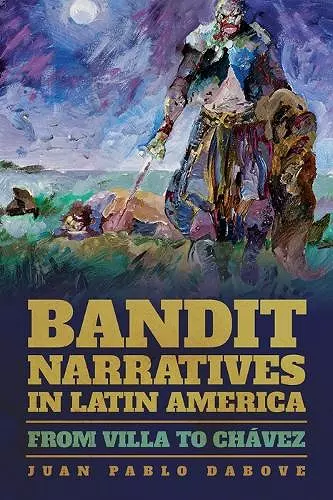Bandit Narratives in Latin America
From Villa to Chávez
Format:Paperback
Publisher:University of Pittsburgh Press
Published:24th Apr '17
Currently unavailable, our supplier has not provided us a restock date

Bandits seem ubiquitous in Latin American culture. Even contemporary actors of violence are framed by narratives that harken back to old images of the rural bandit, either to legitimize or delegitimize violence, or to intervene in larger conflicts within or between nation-states. However, the bandit escapes a straightforward definition, since the same label can apply to the leader of thousands of soldiers (as in the case of Villa) or to the humble highwayman eking out a meager living by waylaying travelers at machete point. Dabove presents the reader not with a definition of the bandit, but with a series of case studies showing how the bandit trope was used in fictional and non-fictional narratives by writers and political leaders, from the Mexican Revolution to the present. By examining cases from Argentina, Brazil, Mexico, Peru, and Venezuela, from Pancho Villa's autobiography to Hugo Chávez's appropriation of his "outlaw" grandfather, Dabove reveals how bandits function as a symbol to expose the dilemmas or aspirations of cultural and political practices, including literature as a social practice and as an ethical experience.
“A fascinating book that breaks new ground, even as it offers a revolutionary reading of the role of literature in twentieth-century Latin America. Dabove goes well beyond a study of the figure of the bandit as a mere artificial construct of Otherness by the discourses of the nation-state, and engages in a discussion of the nature of language, literature, and the role of the intellectual in Latin America.” —Benigno Trigo, Vanderbilt University
ISBN: 9780822964353
Dimensions: unknown
Weight: unknown
368 pages